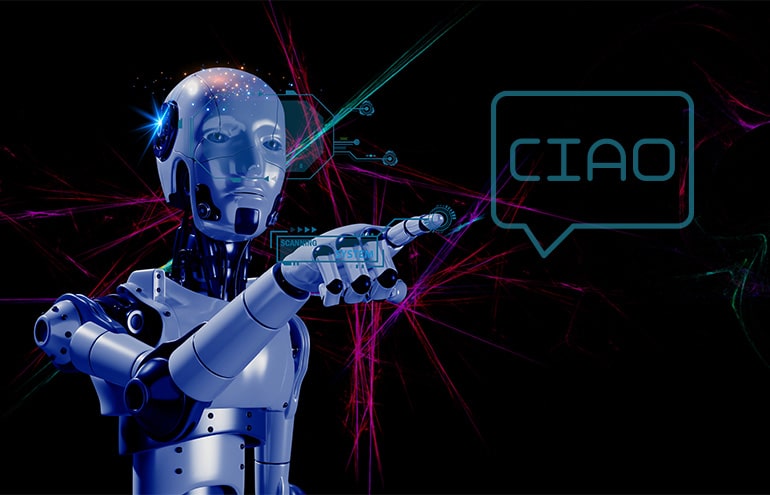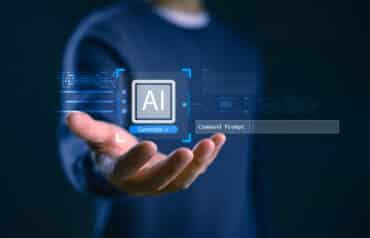Consumers naturally gravitate to solutions they perceive as faster, cheaper or better. AI-based legal services are certainly faster and cheaper and can, in many ways, be better than human ones.

In elementary school, the arrival of a substitute teacher could be a cause for celebration, like a snow day. (Depending on who the regular teacher was.) Lawyers tend not to feel that way about substitutes for their services. But maybe we can learn from a replacement.
I’m talking, of course, about artificial intelligence.
Table of contents
AI-Based Legal Services and Other New Options for Consumers
Many studies have examined why people don’t use lawyers. They may not recognize when a problem can be solved by professional help. They might not see value commensurate with the money or have a negative view of attorneys.
However, cost and inconvenience are always high on the list. Many who would benefit from a lawyer’s help choose to do without. That’s true for businesses and nonprofits as well as budget-challenged individuals.
Consumers naturally gravitate to solutions they perceive as faster, cheaper or better. AI-based legal services are certainly faster and cheaper, and in many ways, they can be better than human ones. Getting a coherent, well-formatted analysis of your situation in light of legal principles in seconds for free is mighty appealing. Hard to compete with that.
Folks can now get highly personalized answers to legal questions instantaneously. They are finding reassurance and encouragement from machines. What lawyer would readily converse with a nonclient at 2 a.m.?
So one way to learn from such a substitute is to remember things we already knew. People like clear, patient explanations. Empathetic listening. Speedy and convenient solutions. We want good value for our time and money.
The Losing War on Substitutes
It’s disconcerting when someone, or something, shows up that can do what you’ve been making a living at less expensively. One response, especially from beneficiaries of a professional monopoly, is to question the legitimacy of the substitute.
Some bar authorities regard all forms of legal assistance other than the services of a lawyer to be “unauthorized practice” (UPL). For example, software-based will preparation tools are only legal in Texas if they conspicuously state that they are “not a substitute for the advice of an attorney.”
Even if UPL regimes weren’t already on shaky constitutional and policy grounds when applied to automated services (see Unauthorized Help), the organized bar can hardly stop people from using general-purpose AI.
One class of customers likely to curtail their consumption of lawyers is lawyers themselves. (For reasons similar to those of consumers!) Law firms will experiment with digital associates, and law departments will leverage internal systems that minimize the amount of work that needs to go to outside counsel.
With the resulting dearth of entry-level jobs, where will the next generation learn to practice? Law schools that have gotten away with supplying inexperienced cogs for pyramid business models may need to up their game.
Displacement and Salvation
In a 1990 talk, I explored ways computers can serve as lawyer-saving devices. One was to spare consumers from having to use lawyers, and another was to rescue lawyers from obsolescence.
In a memorable line, Harvard Law professor Gary Bellow, who taught many early clinical educators (including me), wrote, “Those that can’t do, teach. Those that can’t teach, teach teachers.” (Gary was, in fact, a world-class doer, teacher, and teacher of teachers.)
Nowadays, another career option is to teach machines.
Our latest substitutes are good at learning. And they are getting better faster than we can ever hope to. Yet there still are things that can’t be done well by machine, such as effective advocacy. There’s a market for quality assurance, ethical behavior, and recourse if something goes wrong (e.g., via malpractice insurance). Strategic wisdom amid complex transactions doesn’t yet flow from chatbots.
Ciao, Amico
How should we address this replacement? How about “Hello, friend“?
Humanity has spent billions teaching AI systems. We’re getting payback across many contexts and disciplines. Let’s be open to what they can teach us. Throughout our work lives, there are endless opportunities for just-in-time education.
Intelligent machines will be increasingly competitive substitutes for human lawyers. But they can also help us do our best work — if we focus on augmentation rather than competition.
Now that’s a substitution we should embrace!
Many organizations now have a Chief AI Officer (CAIO). But we need IA (intelligence augmentation) too. Machines can make humans smarter.
I’d like to be a Chief Intelligence Augmentation Officer, or CIAO. Who’s hiring?
Image © iStockPhoto.com.

Sign up for Attorney at Work’s daily practice tips newsletter here and subscribe to our podcast, Attorney at Work Today.
















